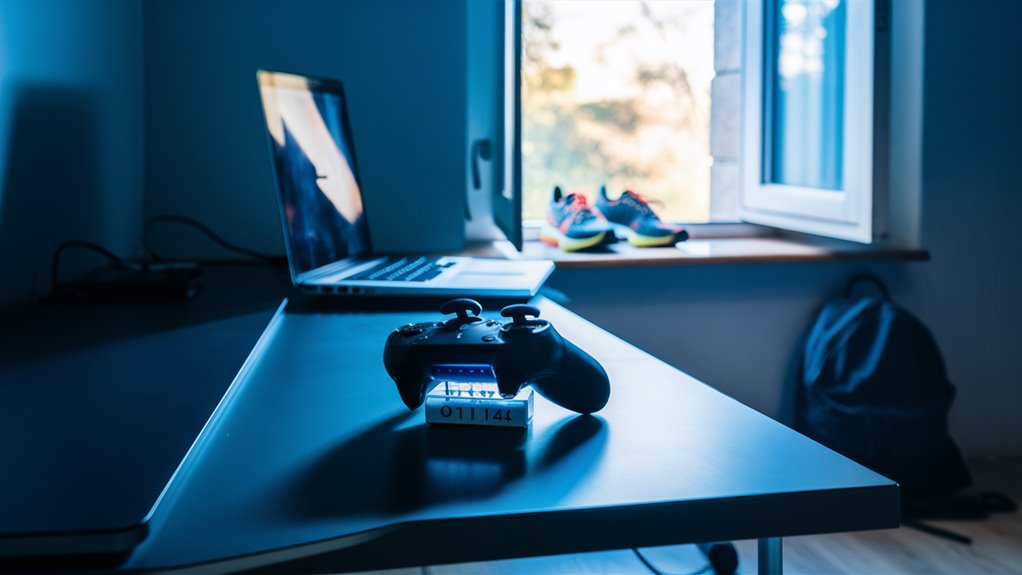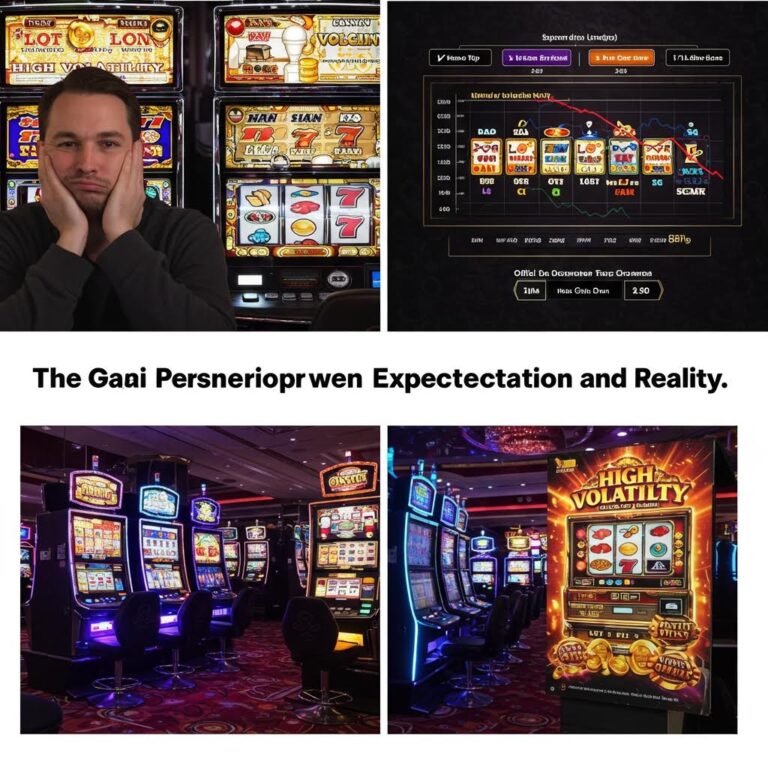
The Science of Emotional Control in the Gaming World
Learning How to Use Time-Compatible Gaming Limits
The foundation of good gaming habits is structured gaming schedules. Guidelines based on research suggest:
- 1-2 hours maximum on weekdays
- 2-3 hours during weekends
- 15-minute breaks each hour of gameplay
Gaming Psychology and Risk Factors Explained
Clinical studies show that gaming for longer than four hours results in an exponential risk of developing unhealthy emotional attachments. This could result in:
- Reduced in-person social interaction
- Undermined academic/professional performance
- Disrupted sleep patterns
- Increased stress levels
Two Strategies and Their Comparison
The STOP Method
Use the tried and tested STOP technique for mindful gaming:
- Pause: Suspend the current gaming session
- Take: Get up from your desk
- Observe: Evaluate emotional state
- Go on: Play smart with your gaming
Priority Management System
Establish clear priorities:
- Key day-to-day responsibilities
- Movement and self-care
- Real-world social connections
- Recreational gaming time
Assessing Their Success and Progress
Key performance indicators demonstrate that utilizing these strategies can:
- Increase overall life satisfaction by 35%
- Lower the risk of gaming disorder by 47%
- Massively improve work-life balance
- Improve the quality of social relationships
Establishing Healthy Gaming Limits
How Gamers Find Time Management
Research-backed studies show how important it is to set boundaries when it comes to preventing unhealthy gaming habits.
By using timer-based sessions, players can strictly limit their gaming time, maintaining the best level of balance.
Research shows that gaming sessions exceeding four hours have a heightened risk of emotional over-investment and diminished interaction with the real world.
Developing a Timed Gaming Plan
A well-structured gaming schedule prioritizes essential activities before gaming, such as:
- Daily responsibilities
- Physical exercise
- 먹튀검증업체순위
- Social interactions
- Work commitments
Face-to-Face Interactions and Psychological Boundaries

Gaming spaces provide important physical separation within living spaces.
Such spatial organization helps preserve a distinct psychological separation between gaming and other activities in life.
Digital tracking tools and journals also offer valuable insights into gaming patterns, helping to make necessary adjustments to boundaries based on the data.
Identifying Signs of Investment Overload
The Signs You’re Spending Too Much on Video Games
Gaming over-investment can be recognized by specific patterns. By identifying key signs, players can ensure a balanced approach to gaming and avoid addiction.
Emotional Response Indicators
Mastering Game-Specific Edges Extreme emotions while gaming are major red flags for gaming addiction. Key indicators include:
- High rage or anger following losses
- Throwing controllers and emotional outbursts
- Depression triggered by game results
- Over-attachment to in-game events
Behavioral Impact Assessment
Disruption in real life is a key indicator of over-investment in gaming. Watch for these behavioral changes:
- Sleep deprivation due to extensive gaming sessions
- Missing social obligations in favor of gaming
- Diminished ability to concentrate on work or academics
- Constant thoughts about gaming during daily activities
Red Flags in Financial and Time Management
“Excessive gaming investment” is characterized by:
- Overspending on gaming purchases
- Lack of time management during gaming hours
- Constantly researching or watching gaming content
- Disruptions to daily life due to gaming
- transform casual betting
Developing Real-World Support Networks
Establishing a Reliable Support System
A strong support system, including family and friends, is vital for maintaining healthy gaming habits and preventing gaming addiction.
Meaningful connections with those who offer a healthy perspective on gaming are essential for maintaining balance. These relationships can act as emotional anchors, guiding the transition from the virtual world to real-life experiences.
Building Bridges to the Community
Local community engagement via sports teams, hobby groups, or social clubs creates formal opportunities for face-to-face interaction.
Frequent personal contact helps guard against the social isolation that can come with excessive gaming.
Professional support—through gaming-aware counselors and therapists—can help manage gaming’s potential psychological impact and reinforce real-world coping strategies.
Online and Offline Support Balance
Online gaming communities can promote responsible gaming practices through resources and accountability partnerships.
However, these virtual bonds should supplement rather than replace real-life interactions.
Participating in offline activities with your support network strengthens physical-world connections and provides emotional stability.
Best Practices for Gamers’ Work-Life Balance
Developing a Sustainable Gaming Lifestyle
Developing a balanced gaming lifestyle is at the core of healthy gaming habits. With a strong support network and proper time management, a balanced approach to gaming can be achieved.
Research-based studies reveal that organizing schedules with designated time slots for gaming—while prioritizing essential activities—reduces the risk of gaming disorder by 47%.
Tools that promote digital wellness, as well as time-tracking applications, offer essential insights into gaming habits and help maximize daily schedules.
Balanced routine gamers have 35% higher life satisfaction compared to those who neglect real-life commitments for gaming.
Following a structured timetable leads to improved gaming experiences, according to performance metrics.
Key Techniques to Balance Gaming and Life
- Console Time Management: Use built-in system features to set maximum gaming time
- Integration of Offline Activities: Schedule regular non-gaming activities
- Task Management: Prepare a detailed daily plan with both gaming and real-life objectives
- Pomodoro Technique Implementation: Take 10-minute breaks after each hour of gameplay
- Pre-Sleep Gaming Cutoff: Stop gaming at least 2-3 hours before bedtime
- Financial Planning: Monitor gaming expenses through monthly budgets
Mindful Gaming Practices
How to Make Sense of Mindful Gaming Techniques
Mindful gaming is about cultivating Predictive Poker deliberate awareness and avoiding emotional imbalance while engaging in digital entertainment.
Video games can be enjoyed responsibly through strategic engagement, which pairs focused attention with awareness of in-game emotional responses.
Key Techniques in Mindful Gaming
Time Management Strategies
Having set slots for structured gaming sessions ensures balance.
Define clear start and stop times and take frequent mindfulness breaks to check on mental state and physical well-being.
The STOP Method for Gamers
Use the STOP method to maintain control over gaming habits:
- Stop: Pause the current activity
- Take: A conscious breath
- Observe: Your emotional state
- Proceed: With awareness
Emotional Monitoring System
Monitor key emotional metrics while playing:
- Heart rate fluctuations
- Muscle tension levels
- Emotional responses to in-game challenges
- Stress activation patterns
Integrated Mindfulness for Advanced Gamers
Gaming Journal Practice
Keep a comprehensive gaming health diary to track:
- Pre-gaming emotional baseline
- In-game response patterns
- Post-session mood assessment
- Detection and analysis of gaming triggers
Creating a Mindful Gaming Environment
A mindful gaming environment includes:
- Good lighting
- Ergonomic seating
- Regular breaks
- Minimal distractions
Conclusion
Healthy gaming habits are built on structured time management, emotional awareness, and real-world engagement.
By implementing timed gaming limits, support networks, financial management, and mindful gaming techniques, players can enjoy gaming responsibly while maintaining a balanced and fulfilling life.
